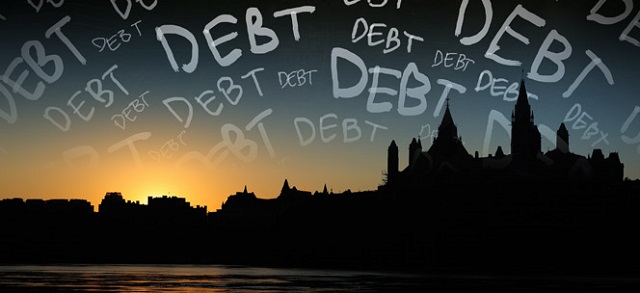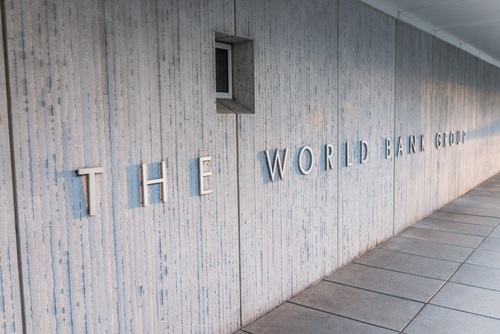Business
University status “one of, if not the most singular, strategic economic development” initiative – Council on RDC Polytechnic announcement

Mayor Veer statement on Red Deer College announcement on behalf of Council
Red Deer College was expected to receive final approval for university status last spring, but the Provincial Government held back on the final decision until the Province’s system review of post-secondary institutions was complete. According to the Government of Alberta, the study was intended to assess how the post-secondary system was meeting current and future needs, review the governance structure, provide comparisons to other post-secondary systems and develop a vision for the future.
While there are some expressed concerns within our community about the change in direction from RDC becoming a university to RDC as a polytechnic institution, including Council’s own questions on behalf of Red Deerians expressed to the Government, ultimately I support a path forward that will protect RDC’s ability to stay true to its roots in trades, technology and the arts, with the ability to confer degrees for other academic pursuits and fields of study. RDC assures City Council that the polytechnic accomplishes these objectives.
Degree conferring status for RDC is one of, if not the most singular, strategic economic development and community building initiatives we can undertake. For our city and region to fulfill our potential, we need to not only retain our existing population, we need to become a competitive contender in keeping and attracting new population to our city. One of the most promising means of doing so is through the development of a skilled labour force, offering a broader spectrum of career options locally, and attracting population who will stay and strengthen our local economy through their future contributions in various sectors.
Most importantly, building advanced education capacity at RDC ensures students in Red Deer and the region have more equitable access to advanced education services closer to home instead of being forced to relocate to other communities at great financial expense, or even more concerning, not pursue post-secondary education at all as a result of financial or geographic barriers.
I’d like to thank the generations of RDC leadership, faculty, staff, students, Students’ Association representatives and our community for your steadfast resolve and your insistence that the people of Red Deer and Central Alberta have equitable access to options in advanced education.
On behalf of Council and community, congratulations to this year’s graduates – we are proud of your accomplishments and look forward to supporting you in your future endeavors. Today, we welcome the fact that Red Deer College can finally take a significant step towards its future, and we remain committed to supporting the College, and the interests of the students who will always be RDC’s most compelling imperative, during this transition and in the years to come.”
Business
CBC’s business model is trapped in a very dark place

I Testified Before a Senate Committee About the CBC
I recently testified before the Senate Committee for Transport and Communications. You can view that session here. Even though the official topic was CBC’s local programming in Ontario, everyone quickly shifted the discussion to CBC’s big-picture problems and how their existential struggles were urgent and immediate. The idea that deep and fundamental changes within the corporation were unavoidable seemed to enjoy complete agreement.
I’ll use this post as background to some of the points I raised during the hearing.
You might recall how my recent post on CBC funding described a corporation shedding audience share like dandruff while spending hundreds of millions of dollars producing drama and comedy programming few Canadians consume. There are so few viewers left that I suspect they’re now identified by first name rather than as a percentage of the population.
Since then I’ve learned a lot more about CBC performance and about the broadcast industry in general.
For instance, it’ll surprise exactly no one to learn that fewer Canadians get their audio from traditional radio broadcasters. But how steep is the decline? According to the CRTC’s Annual Highlights of the Broadcasting Sector 2022-2023, since 2015, “hours spent listening to traditional broadcasting has decreased at a CAGR of 4.8 percent”. CAGR, by the way, stands for compound annual growth rate.
Dropping 4.8 percent each year means audience numbers aren’t just “falling”; they’re not even “falling off the edge of a cliff”; they’re already close enough to the bottom of the cliff to smell the trees. Looking for context? Between English and French-language radio, the CBC spends around $240 million each year.
Those listeners aren’t just disappearing without a trace. the CRTC also tells us that Canadians are increasingly migrating to Digital Media Broadcasting Units (DMBUs) – with numbers growing by more than nine percent annually since 2015.
The CBC’s problem here is that they’re not a serious player in the DMBU world, so they’re simply losing digital listeners. For example, of the top 200 Spotify podcasts ranked by popularity in Canada, only four are from the CBC.
Another interesting data point I ran into related to that billion dollar plus annual parliamentary allocation CBC enjoys. It turns out that that’s not the whole story. You may recall how the government added another $42 million in their most recent budget.
But wait! That’s not all! Between CBC and SRC, the Canada Media Fund (CMF) ponied up another $97 million for fiscal 2023-2024 to cover specific programming production budgets.
Technically, Canada Media Fund grants target individual projects planned by independent production companies. But those projects are usually associated with the “envelope” of one of the big broadcasters – of which CBC is by far the largest. 2023-2024 CMF funding totaled $786 million, and CBC’s take was nearly double that of their nearest competitor (Bell).
But there’s more! Back in 2016, the federal budget included an extra $150 million each year as a “new investment in Canadian arts and culture”. It’s entirely possible that no one turned off the tap and that extra government cheque is still showing up each year in the CBC’s mailbox. There was also a $93 million item for infrastructure and technological upgrades back in the 2017-2018 fiscal year. Who knows whether that one wasn’t also carried over.
So CBC’s share of government funding keeps growing while its share of Canadian media consumers shrinks. How do you suppose that’ll end?
We make content free for you but we require support to create journalism. Please consider a free subscription to our newsletter, or donate an amount of your choice.
Business
PBO report shows cost of bureaucracy up 73 per cent under Trudeau

From the Canadian Taxpayers Federation
The Canadian Taxpayers Federation is calling on the federal government to rein in the bureaucracy following today’s Parliamentary Budget Officer report showing the bureaucracy costs taxpayers $69.5 billion.
“The cost of the federal bureaucracy increased by 73 per cent since 2016, but it’s a good bet most Canadians aren’t seeing anywhere close to 73 per cent better services from the government,” said Franco Terrazzano, CTF Federal Director. “Taxpayers are getting soaked because the size and cost of the federal bureaucracy is out of control.”
Today’s PBO report estimates the federal bureaucracy cost taxpayers $69.5 billion in 2023-24. In 2016-17, the cost of the bureaucracy was $40.2 billion. That’s an increase of 72.9 per cent.
The most recent data shows the cost continues to rise quickly.
“Spending on personnel in the first five months of 2024-25 is up 8.0 per cent over the same period last year,” according to the PBO.
“I have noticed a marked increase in the number of public servants since 2016 and a proportional increase in spending,” said Parliamentary Budget Officer Yves Giroux. “But we haven’t seen similar improvements when it comes to service.”
The Trudeau government added 108,793 bureaucrats since 2016 – a 42 per cent increase. Canada’s population grew by 14 per cent during the same period. Had the bureaucracy only increased with population growth, there would be 72,491 fewer federal employees today.
The government awarded more than one million pay raises to bureaucrats in the last four years, according to access-to-information records obtained by the CTF. The government also rubberstamped $406 million in bonuses last year.
“The government added tens of thousands of extra bureaucrats, rubberstamped hundreds of millions in bonuses and awarded more than one million pay raises and all taxpayers seem to get out of it is higher taxes and more debt,” Terrazzano said. “For the government to balance the budget and provide tax relief, it will need to cut the size and cost of Ottawa’s bloated bureaucracy.”
-

 Brownstone Institute1 day ago
Brownstone Institute1 day agoThe Most Devastating Report So Far
-

 Business1 day ago
Business1 day agoCarbon tax bureaucracy costs taxpayers $800 million
-

 ESG1 day ago
ESG1 day agoCan’t afford Rent? Groceries for your kids? Trudeau says suck it up and pay the tax!
-

 Daily Caller1 day ago
Daily Caller1 day agoLos Angeles Passes ‘Sanctuary City’ Ordinance In Wake Of Trump’s Deportation Plan
-

 John Stossel1 day ago
John Stossel1 day agoGreen Energy Needs Minerals, Yet America Blocks New Mines
-

 COVID-192 days ago
COVID-192 days agoDr. McCullough praises RFK Jr., urges him to pull COVID shots from the market
-

 MAiD2 days ago
MAiD2 days agoOver 40% of people euthanized in Ontario lived in poorest parts of the province: government data
-

 Alberta1 day ago
Alberta1 day agoProvince considering new Red Deer River reservoir east of Red Deer









